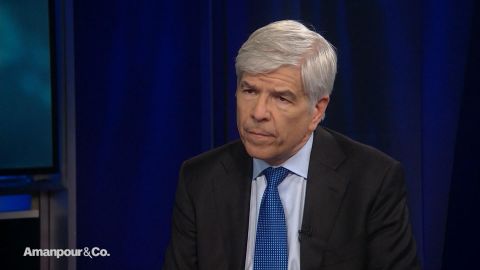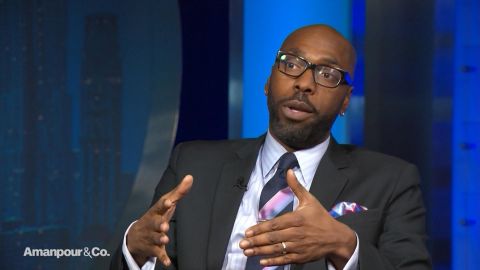Read Transcript EXPAND
CHRISTIANE AMANPOUR: So, first and foremost, all eyes are always on China. It’s had a huge meeting, it’s annual National Congress, where they said for the first time that growth is significantly slowing —
PAUL ROMER, WINNER OF THE 2018 NOBEL PRIZE IN ECONOMICS: Yes.
AMANPOUR: — and they proposed a massive 300 billion tax cut to try to spur growth. I mean, it sounds —
ROMER: Yes.
AMANPOUR: — very Trumpy and I don’t know —
ROMER: Yes.
AMANPOUR: whether I’m correct. But will that work? What do you see? What are you looking for in this whole equation?
ROMER: Yes. So, the most important thing to remember is that tax cuts do not give you more growth. The Chinese understand that. They also understand that they’re on a trajectory where they’re slowing from 10 percent growth, 6 percent, 6.5 last year, maybe 6 this year. And eventually, their growth are a little converged to 2 or 3 percent like the rest of the countries when they catch up with us. So, that’s slowing is not the problem. What they’re worried about is that they could see an increase in unemployment this year. And a tax cut can help you reduce unemployment. So, tax cuts for temporary reductions unemployment, sure. But not for faster growth.
AMANPOUR: So, that’s a very political demographic thing that they’re looking at. I mean —
ROMER: Well —
AMANPOUR: — are they worried about political instability with — well, what is it?
ROMER: Yes.
AMANPOUR: Yes.
ROMER: So, they’re very concerned about political instability. But, you know, in any of our economies, we understand that a big increase in unemployment is very damaging in people’s lives, very disruptive. So, if you can stabilize the economy to avoid those disruptions for workers, everybody’s better off.
AMANPOUR: Given that they’re talking about this kind of thing right now, and you put it in perspective, I mean, from 6.5 to 6 percent growth, I mean, it’s still very healthy growth.
ROMER: It’s high, yes.
AMANPOUR: But many economists are already predicting that what happens in China will sort of affect the rest of the world. People are wondering whether there will be a knock-on effect and a hit on global economic growth.
ROMER: Yes. You know, there could be some truth to that but I think it’s a distraction because what it facilitates is this excuse that, “Oh, what’s happening in our country is out of our control. It’s because of something that happened in China.” And if we’re worried about an increase in unemployment in one of our countries, we need to do something like cut taxes just the way China did. So, we shouldn’t blame things on them. We just (INAUDIBLE) what do we want, how we’re going to get it.
AMANPOUR: Obviously, the United States is involved in a trade war with China.
ROMER: Yes.
AMANPOUR: So, they’re locked in this.
ROMER: Yes.
AMANPOUR: Where do you see it ending up?
ROMER: Yes. So, first, there’s a separate military kind of rivalry that’s emerging, but that’s different from economic affairs. Now, the trade war, one of the reasons people want to start a trade war is that they feel like China is our enemy in the United States. So, China is U.S.’s enemy. So, they want to harm the Chinese economy but that’s just a foolish way to shoot itself in the foot, if the United States takes that stance because if the United States tries to harm the Chinese economy, the Chinese will try and harm the U.S. economy, and nobody’s going to come out ahead in that kind of encounter.
About This Episode EXPAND
Christiane Amanpour speaks with Paul Romer, winner of the 2018 Nobel Prize in Economics, about sustainable economic growth; and author Irshad Manji about “honest diversity.” Michel Martin speaks with American Studies professor Davarian Baldwin about why racist practices from the past continue to haunt U.S. politics today.
LEARN MORE


